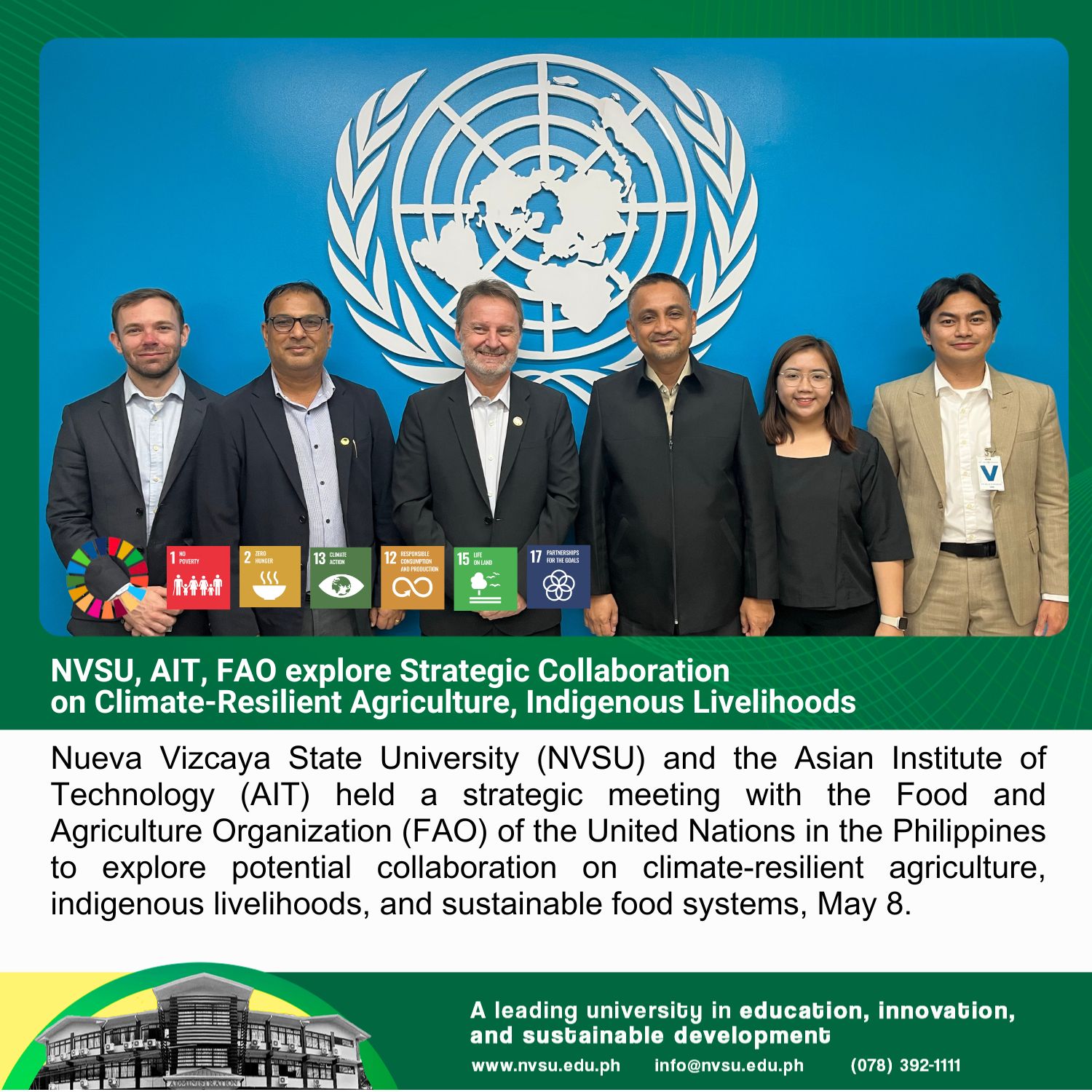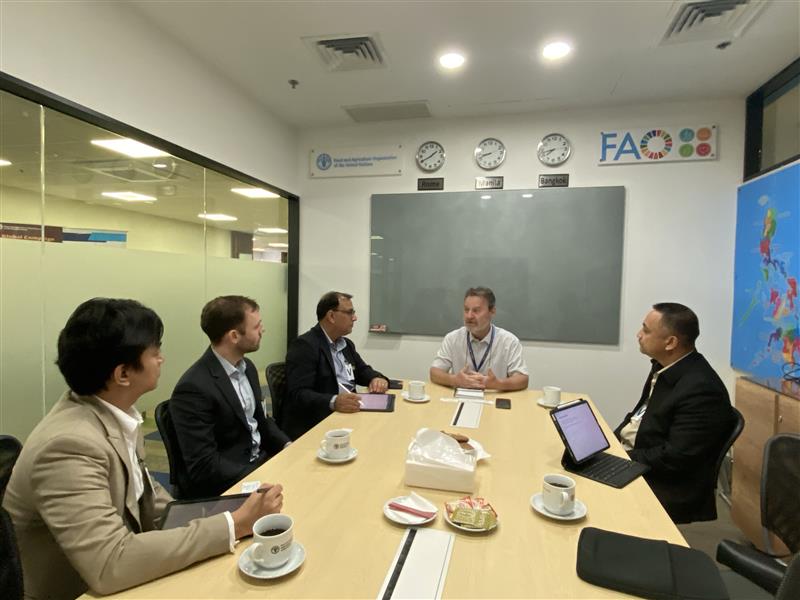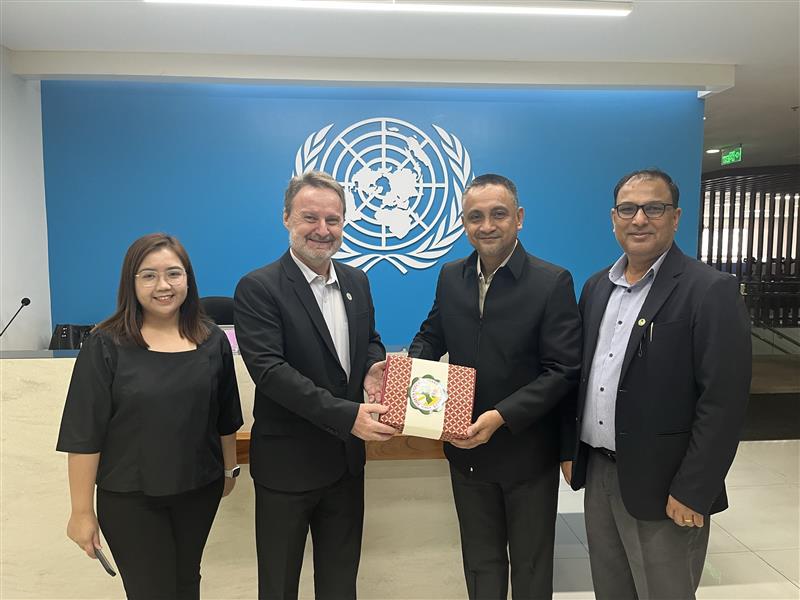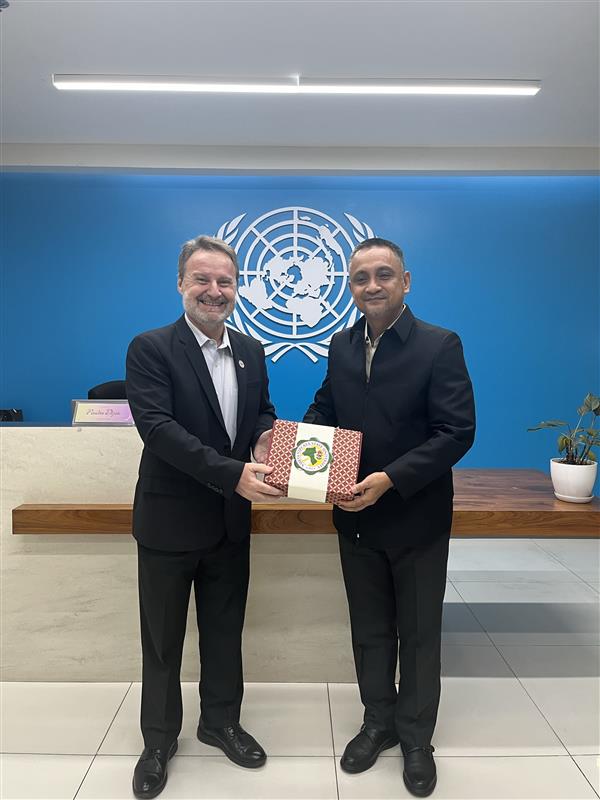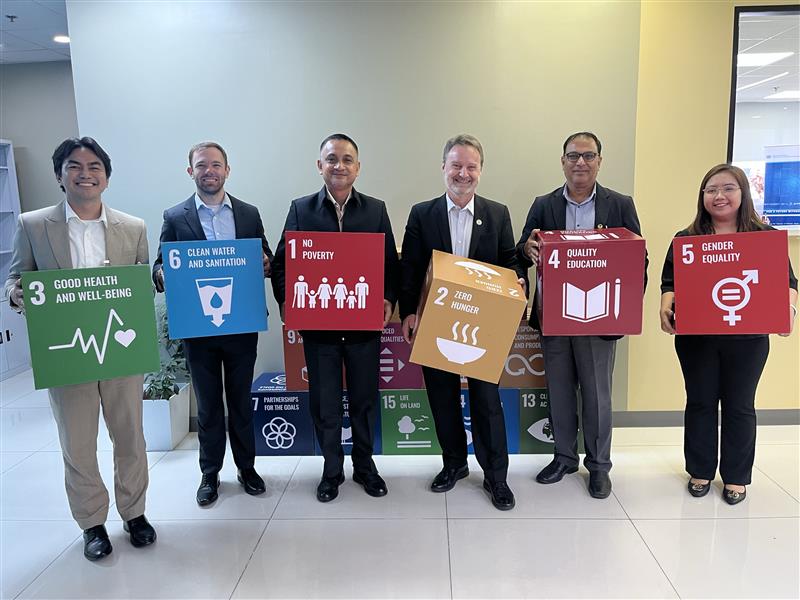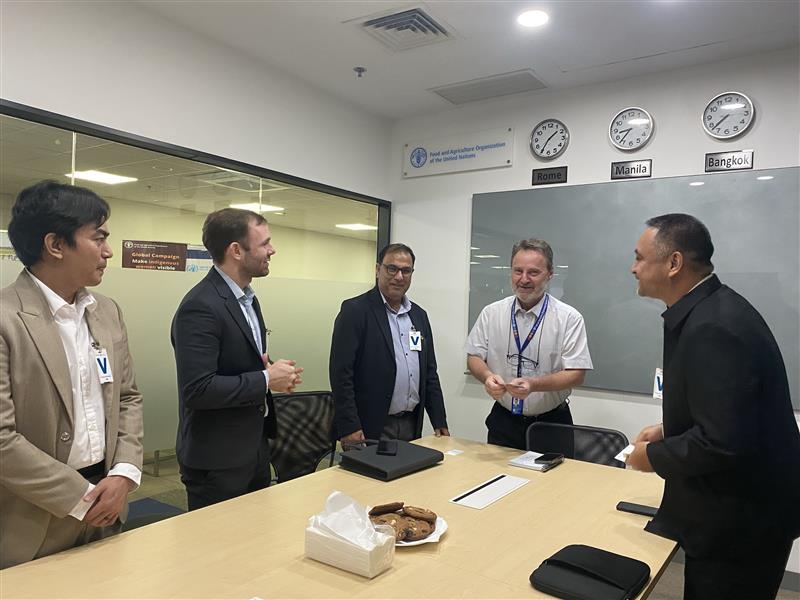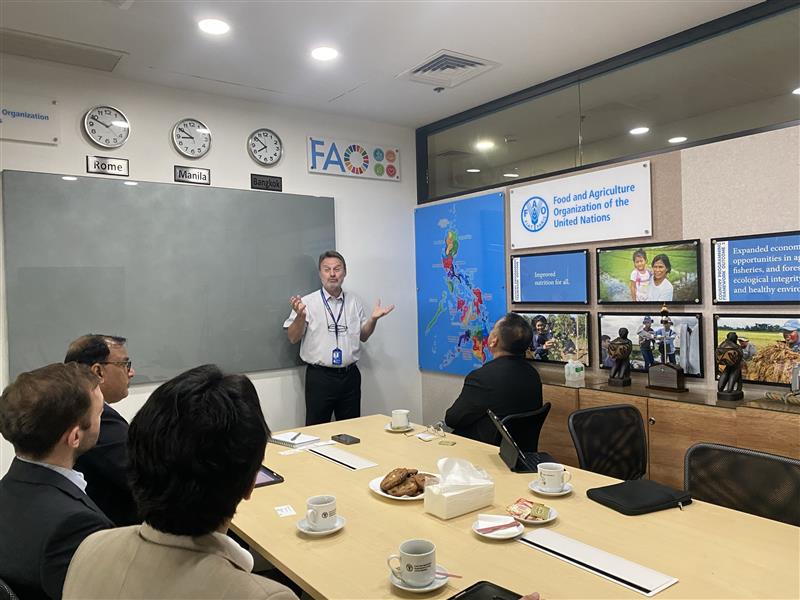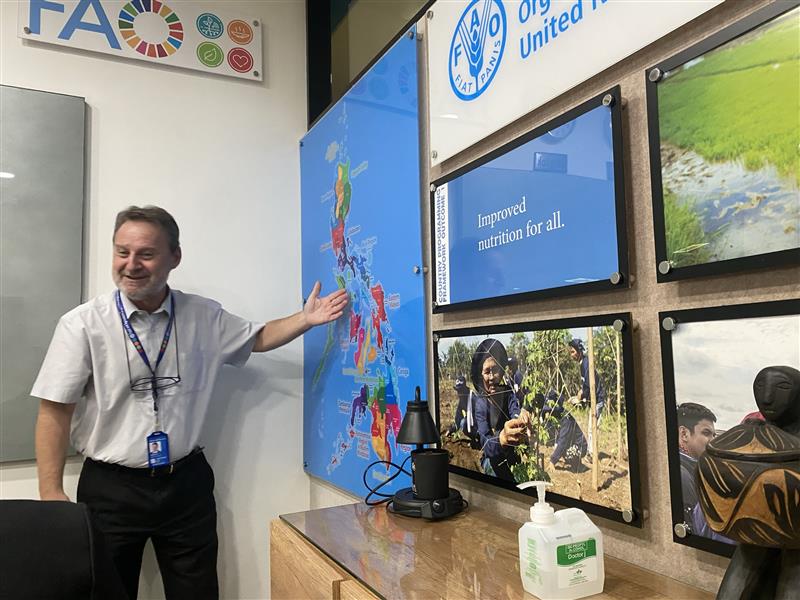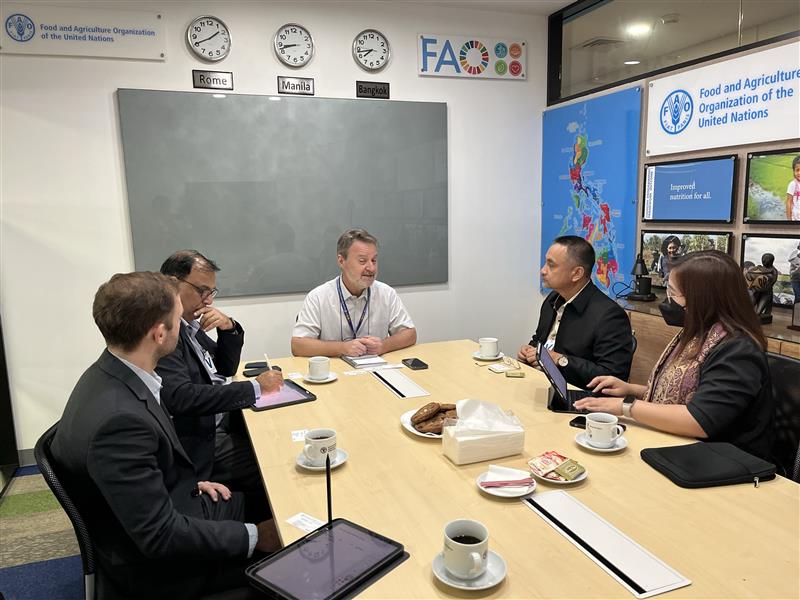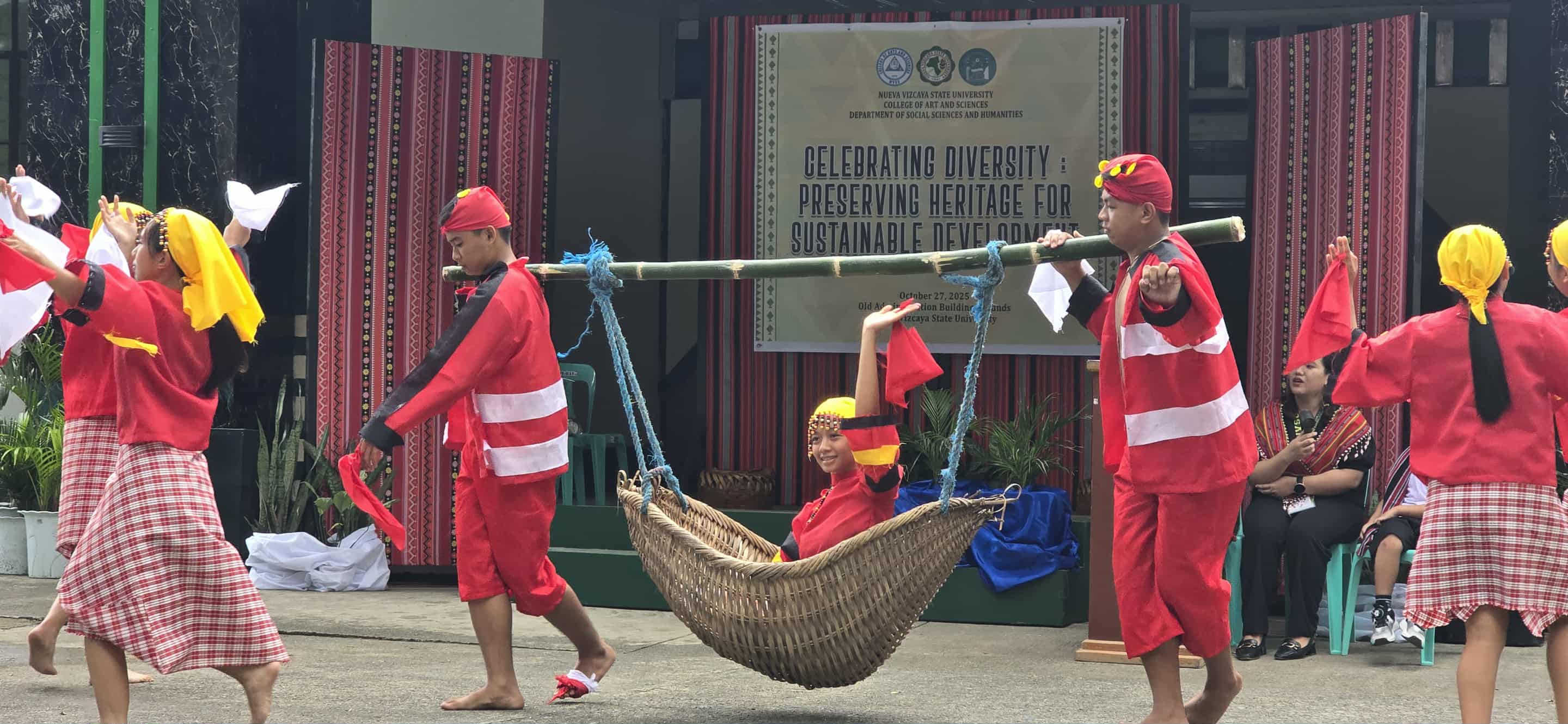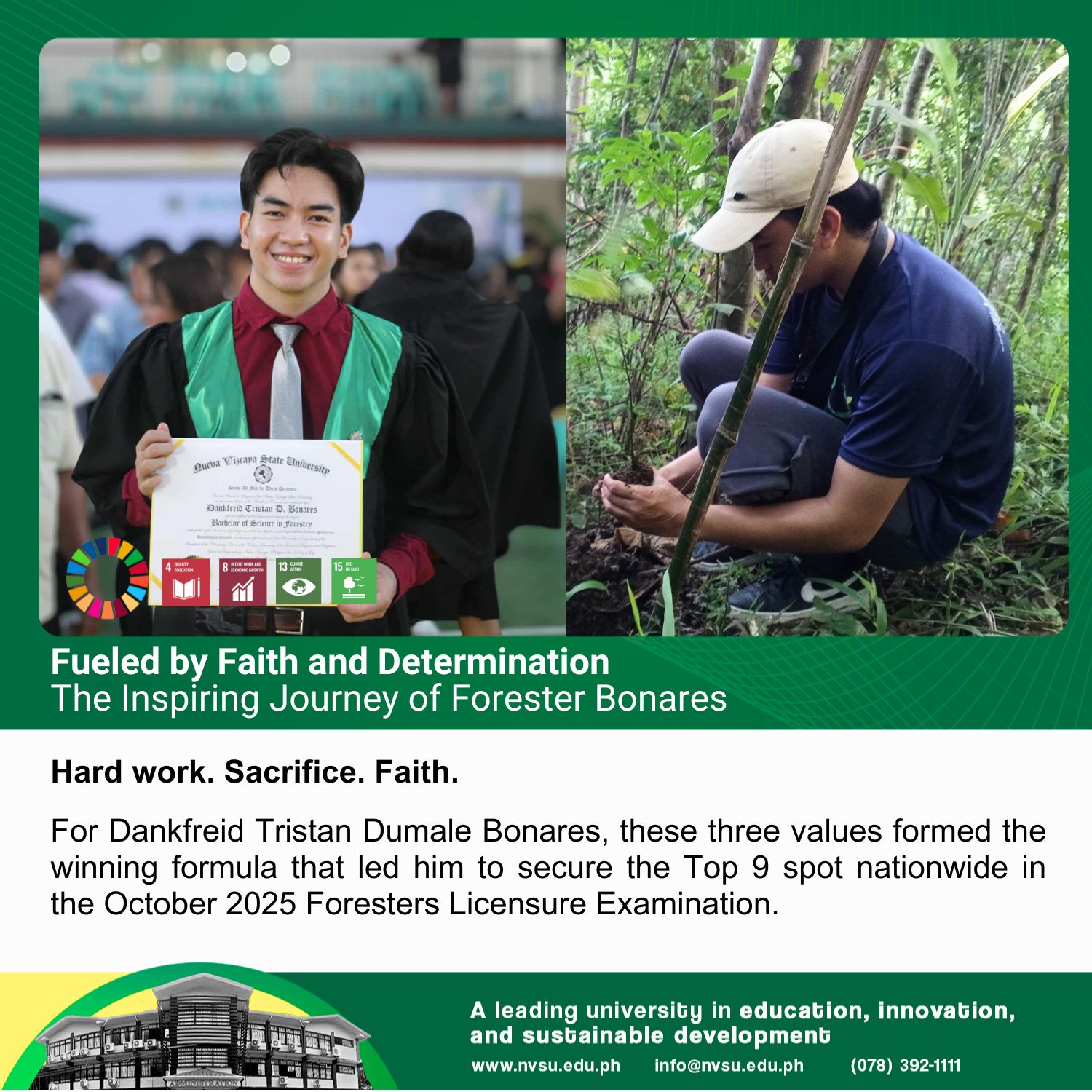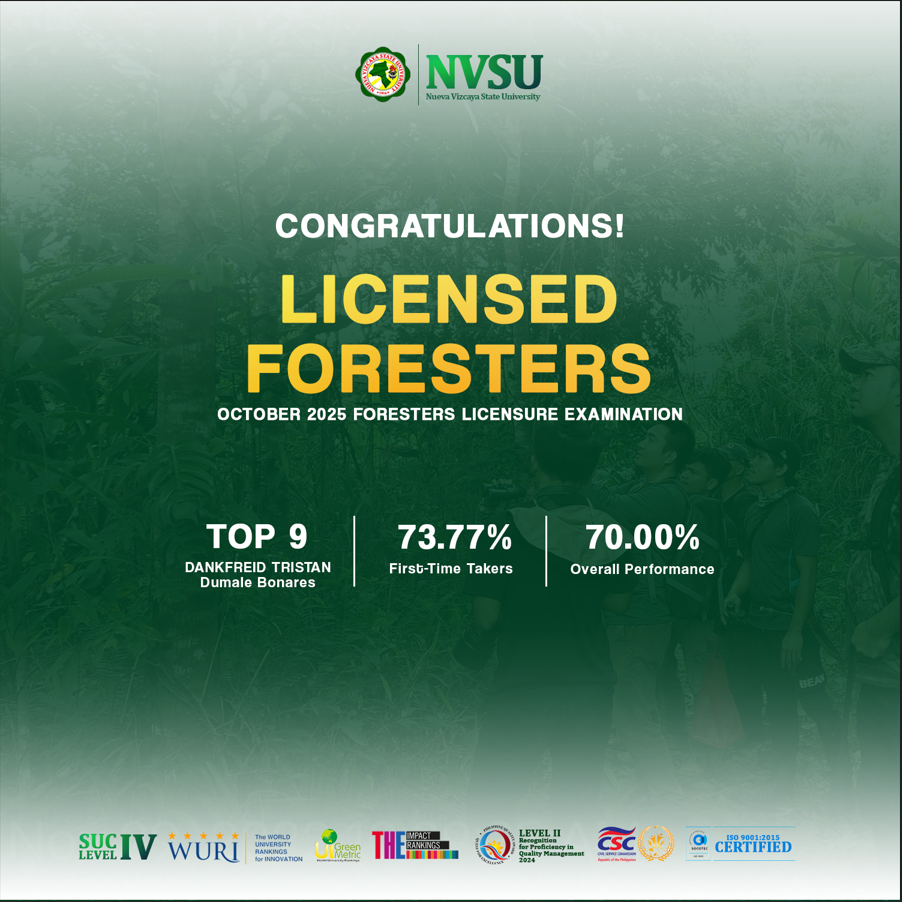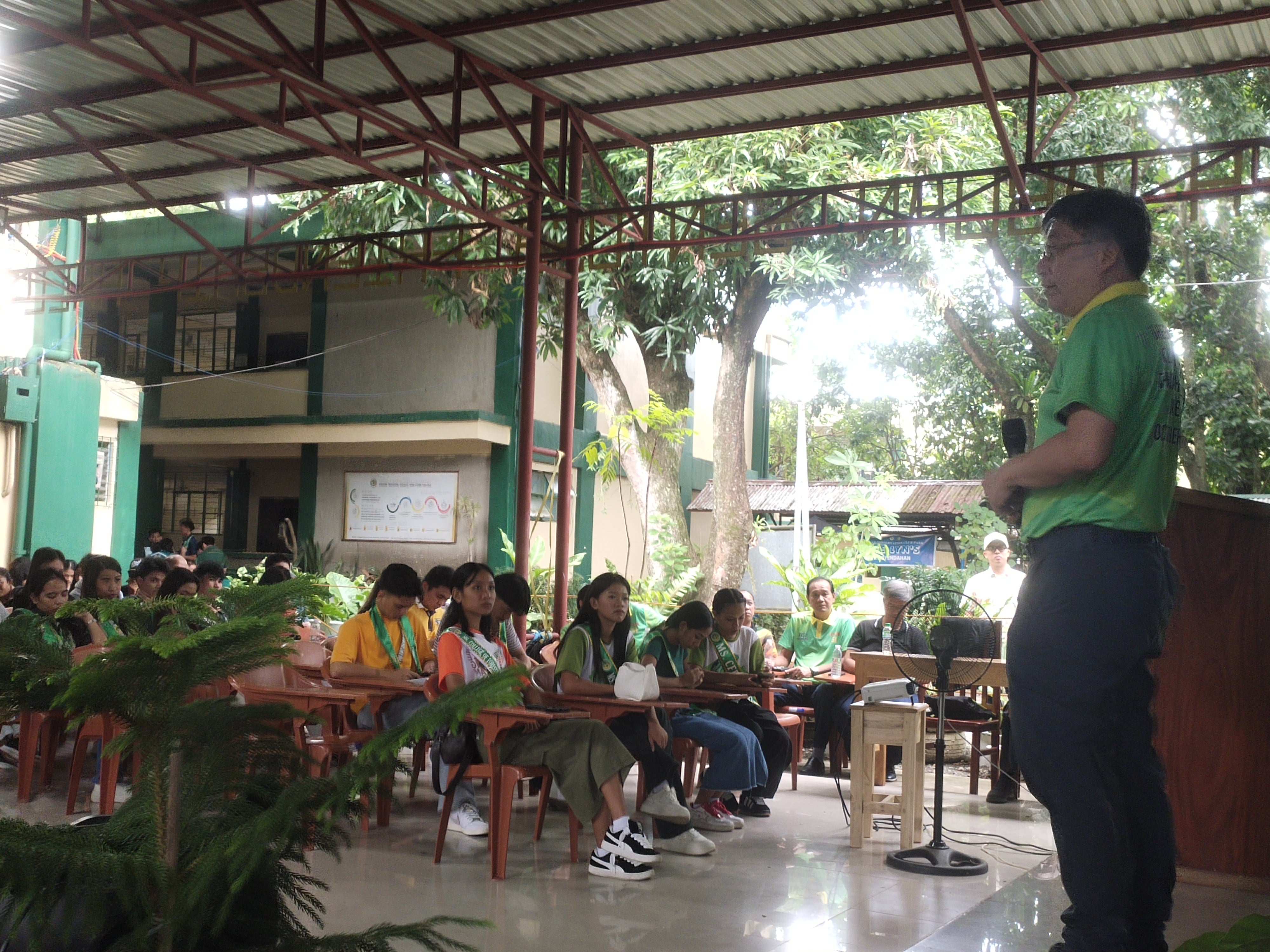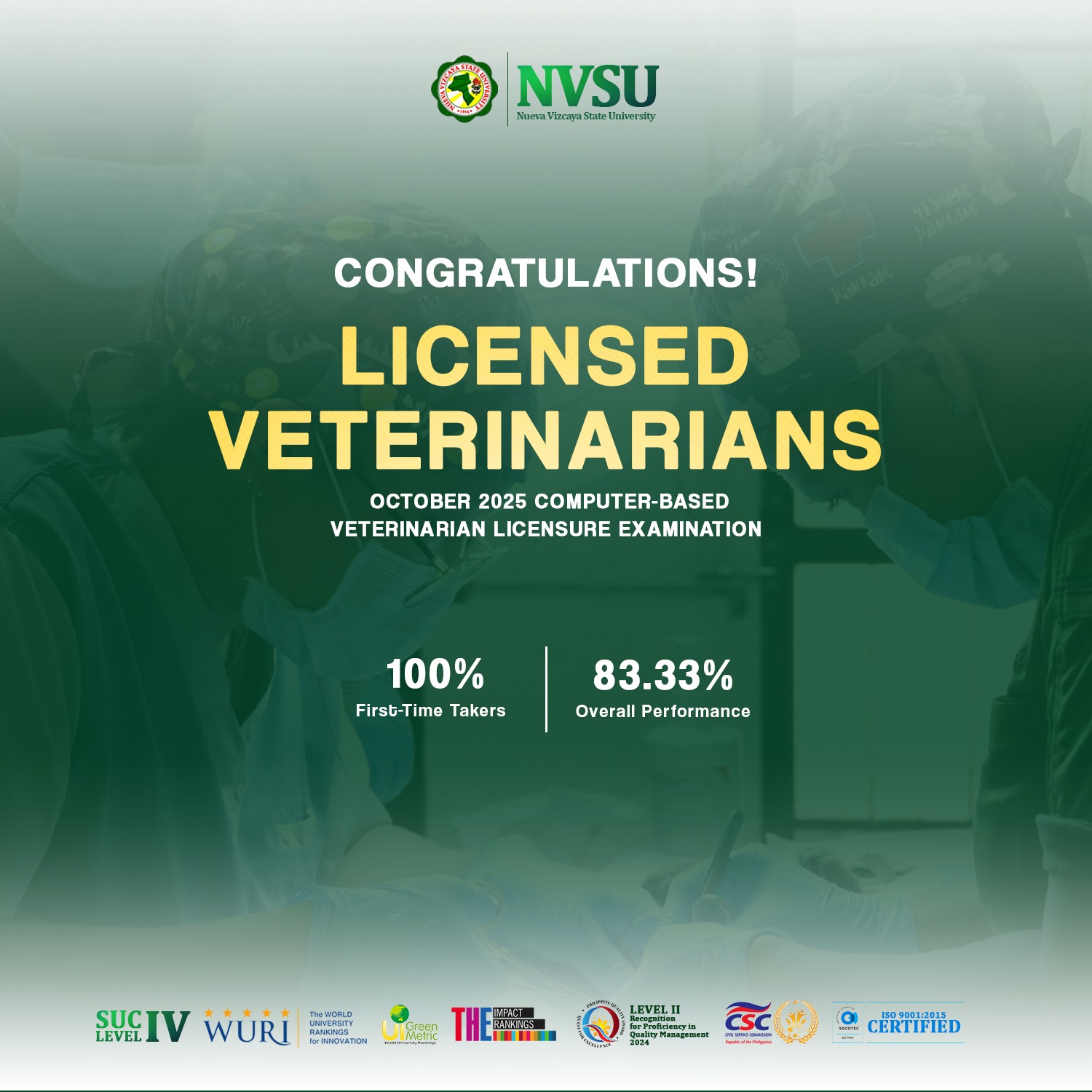
NVSU, AIT, FAO explore Strategic Collaboration on Climate-Resilient Agriculture, Indigenous Livelihoods
Nueva Vizcaya State University (NVSU) and the Asian Institute of Technology (AIT) held a strategic meeting with the Food and Agriculture Organization (FAO) of the United Nations in the Philippines to explore potential collaboration on climate-resilient agriculture, indigenous livelihoods, and sustainable food systems, May 8.
The meeting, held at the FAO Country Office in Manila, was led by Mr. Lionel Dabbadie, FAO Representative in the Philippines.
Representing NVSU were University President Dr. Wilfredo A. Dumale, Jr. and Director for International Affairs Atty. Regine Karla G. Tabas.
The AIT delegation included Prof. Anil Kumar Anal, Chair of Food Innovation, Nutrition, and Health; Mr. Daniel Rice, Research Associate; and Mr. Johnmel Valeroso, MSc Student.
Mr. Dabbadie gave a comprehensive overview of FAO’s longstanding work in the Philippines, which began 80 years ago—making the agency older than the United Nations itself. He emphasized FAO’s mandate of supporting national governments in implementing science-based, climate-resilient agricultural systems, while focusing on skills development, cooperative strengthening, disaster preparedness, and scaling appropriate technologies for the country’s unique geography and vulnerability to natural disasters.
Dr. Dumale shared NVSU’s initiatives in strengthening agricultural resilience and sustainability in Nueva Vizcaya, home to 18 indigenous communities, most of whom rely on agriculture for their livelihood. He also discussed the university’s leadership in the citrus industry and its role in cooperative development and enterprise training.
Prof. Anal highlighted AIT’s longstanding partnerships with both FAO and various Philippine institutions. He echoed the importance of linking the academic sector with FAO’s development work, noting shared advocacies such as food security, indigenous food systems, and sustainable rural transformation.
During the meeting, President Dumale expressed his intent to submit a concept note to FAO for their consideration. The proposed collaboration would focus on agricultural and climate resilience initiatives, particularly among indigenous populations.
The meeting concluded with a shared commitment to explore formal cooperation through research engagement, capacity-building, and localized community development efforts aligned with national priorities and FAO’s programmatic goals.
Gallery:

